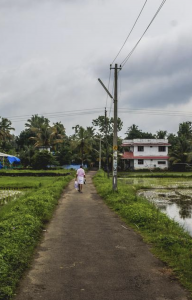NEW DELHI, Aug 5: According to sources, Union Cabinet has approved a last-mile broadband connectivity plan for 6.4 lakh villages across the country under the Bharat Net project with an outlay of Rs 1.39 lakh crore. According to the BharatNet project, approximately 1.94 lakh villages have currently been connected, and the remaining villages would likely be connected in the following 2.5 years, they stated.
One of the sources said, “The Cabinet approved Rs 1,39,579 crore in its meeting on Friday evening for providing last mile optical fiber-based connectivity to homes in all villages of the country.”
Bharat Broadband Network Limited (BBNL), a division of state-owned BSNL, will offer last-mile connectivity in collaboration with village level entrepreneurs (VLE).”Following the successful conclusion of a pilot project, the model to implement fiber-to-the-home was developed with the assistance of a local businessman. According to insiders, the trial initiative was initially used to link communities in four districts before being expanded to 60,000 villages across most states.
BBNL is responsible for providing the customer premise equipment and additional fibre needed to connect households, and local business owners are in charge of maintaining the network.”The trial initiative, which served 60,000 villages, was carried out by about 3,800 entrepreneurs, who offered 3.51 lakh broadband connections. 175 gigabytes of data are consumed on average per family each month, according to one of the sources.
The project is being launched on a revenue-sharing basis of 50% between BBNL and VLE, and the cost of a monthly broadband plan begins at Rs 399 and more.
Sources claim that the country possesses 37 lakh route kilometres (rkm) of optical fibre cable (OFC), of which BBNL has installed 7.7 lakh rkm.According to a source, “the broadband connection has started empowering rural areas where people have started receiving treatment from international doctors, some businessmen have started providing tutorials on YouTube, families are saving money on preparation for competitive exams, and many other use cases are coming up.”
The project is anticipated to produce 2.5 lakh new jobs for the nation.

